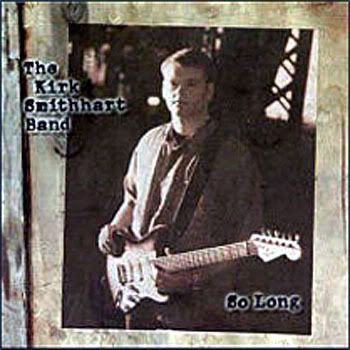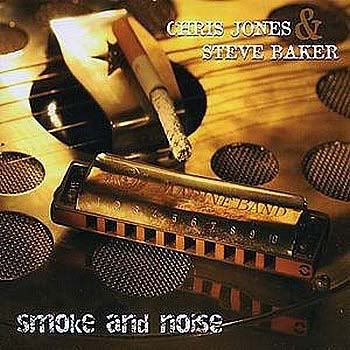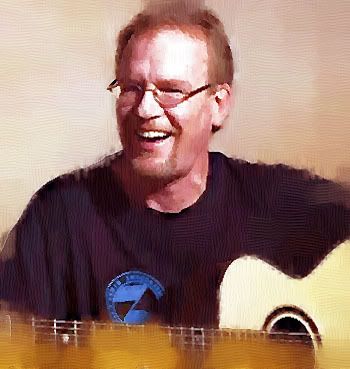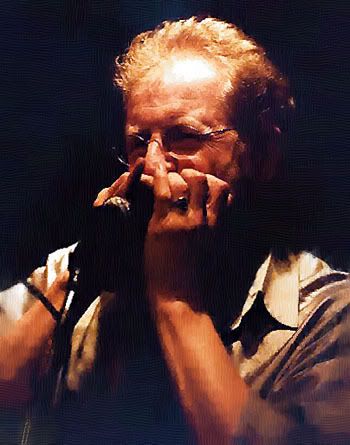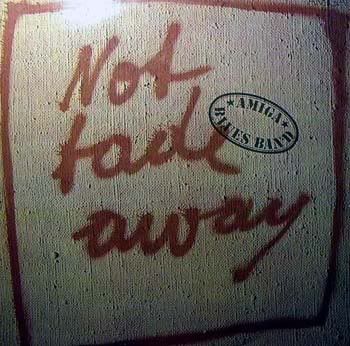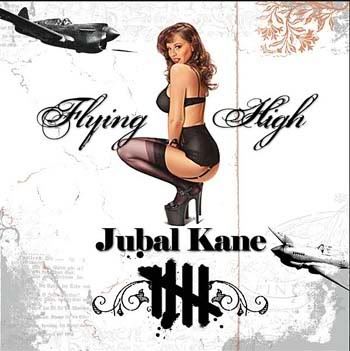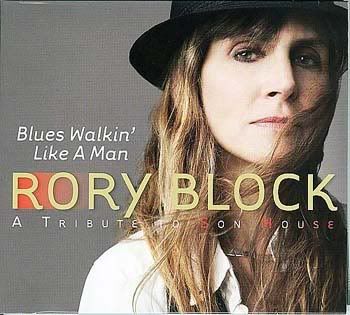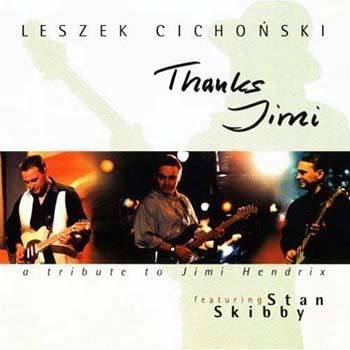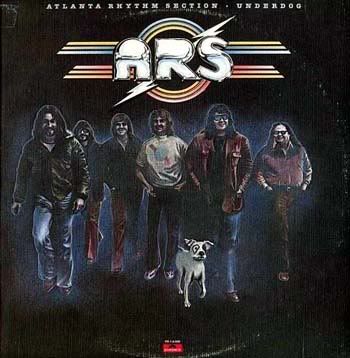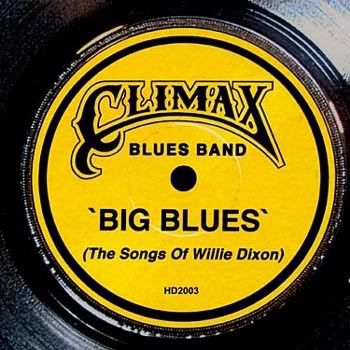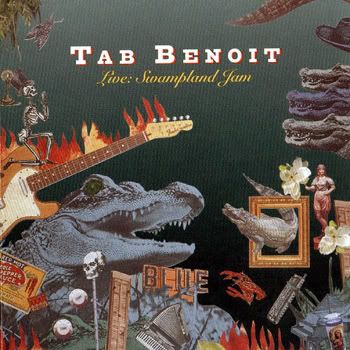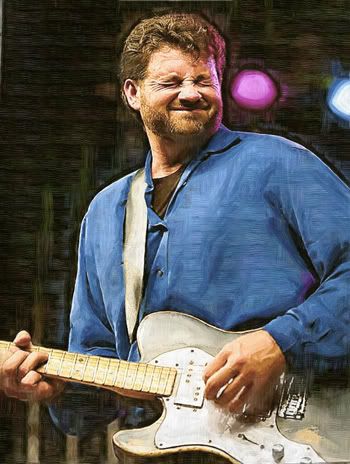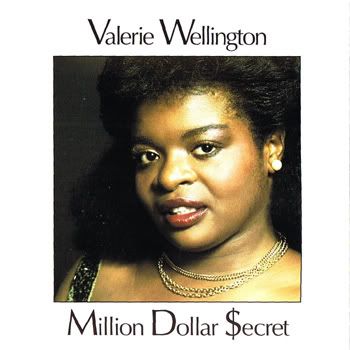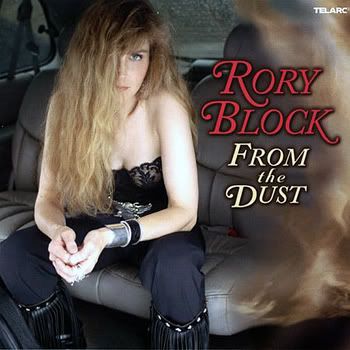
Rory Block - From the Dust - 2005 - Telarc
The following articles say it all about this album from the living blues legend, Rory Block - “Bottom line: there’s nobody like Rory Block. For the past 30 years she has taken the blues and revered, studied, interpreted, lived, stretched, remade, and returned to them in all their stark simplicity, all the while planting them in her soul and grafting them onto herself like a skin. Rory Block is the blues. From the Dust, her second offering for the Telarc label, is a gritty, in-the-cut, inspired acoustic collection that showcases Block’s exemplary skills as a guitarist, songwriter, and yes, singer. In listening to Block’s own songs here, one can hear the actual historical blues tradition write itself into the new century.” © All Music Guide 'album pick' : “[Rory Block] may have grown up in Greenwich Village, but Lord knows she’s got some Southern roots...Today, she’s arguably the greatest acoustic slide guitarist around.” -- © Tuscaloosa (AL) News : “From the Dust possesses an internal organization more fully formed here than on Block’s previous recordings...This is a quite seminar on finger-style guitar picking. Ultimately, From the Dust is a spiritual journey, one that does not flinch.” © AllAboutJazz.com
One of the great blues musicians of the 20th & 21th centuries. Like Paul Rishell & Annie Raines, Rory has done an incalculable amount of work in preserving the blues, in all it's forms. All of Rory Block's albums are HR by A.O.O.F.C. Search this blog for info on some of her other work.
TRACKS / COMPOSERS
From the Dust - Rory Block
One Way Down - Rory Block
The Gate - Rory Block
David Had the Blues - Rory Block
Big As Texas - Rory Block
High Water Everywhere - Charley Patton
I Be Bound - McKinley Morganfield
Stones in My Passway - Robert Johnson
Dry Spell Blues - Son House
Fargo Baby - Rory Block
Runaway Dog - Rory Block
Take a Train - Rory Block
Remember - Rory Block
Unprecedented Quiet - Rory Block
MUSICIAN
Rory Block - Guitar & Vocals
REVIEWS
Bottom line: there's nobody like Rory Block. For the past 30 years she has taken the blues and revered, studied, interpreted, lived, stretched, remade, and returned to them in all their stark simplicity, all the while planting them in her soul and grafting them onto herself like a skin. Rory Block is the blues. From the Dust, her second offering for the TelArc label, is a gritty, in-the-cut, inspired acoustic collection that showcases Block's exemplary skills as a guitarist, songwriter, and yes, singer. In listening to Block's own songs here, one can hear the actual historical blues tradition write itself into the new century. Block's own songs stack up tight against Charley Patton's "High Water Everywhere," Muddy Waters' "I Be Bound," and even Robert Johnson's classic "Stones in My Passway." She doesn't need to write reverentially or referentially because she has the lyrical, compositional, and spiritual fortitude to bring the murky stuff up and out it to the listener unfiltered. The brief, ringing slide run that introduces the title track is the opening of a door. "From the Dust" is a manifesto, a foot-stomping testament to Block's pedigree through the grit of human experience, heartbreak, and transcendence. The rollicking open-tuned gospel-blues of "One Way Down" offers a candid view of personal surrender. "David Had the Blues," with multi-tracked backing vocals and finger popping by Block, is what Rev. Gary Davis might have sounded like if he had been born a woman in the mid-20th century. The three covers all come sequentially in the middle of the set, almost as a suite. In the grain of Block's voice and dynamite playing one can hear the ghosts of the tradition whispering, very much alive in the heart of the heart of the country blues, seeking to impart their cautionary difficult truths to yet another generation. "Dry Spell," with its killer bottleneck work, is a sultry moaner, while "Fargo Baby" spits and sputters, riding the rail of its bassline like a train. The sheer spooky haunt of "Remember"'s intro transforms itself into a paean of acceptance and is one of the most affirming gospel tunes to come out of the genre since the 1950s. The disc whispers to a close with "Unprecedented Quiet," a stirring, gently moving instrumental that underscores the emotional range of all that has transpired here. From the Dust is impure blues poetry by one of the music's few living legends. © Thom Jurek, All Music Guide
Rory Block sings and plays the country blues like an Oklahoma whirlwind kicks up the dust. She’s a force of nature that needs to be reckoned with. Block doesn’t just strum the guitar, she slashes at the strings with one hand like she’s like she’s chopping firewood while the other goes up and down the neck like she’s strangling a chicken. Except that description suggests she’s not in control, and Block always serves as the guitar’s boss. The New York City child (born in Princeton, N.J., raised in Greenwich Village) learned how to play firsthand from some of the old masters, such as Rev. Gary Davis, Son House, and Mississippi John Hurt. Block’s raw and raspy voice suggests a lifetime of experience, and indeed she’s been singing and playing the blues for more than 30 years. The first 13 cuts on From the Dust feature Block making a lot of noise all by herself. She provides all guitar and vocals, although she does overdub and multi-track her voice and instrumentals. Although the acoustic tunes range in dynamic character, they all share an intensity of delivery. That doesn’t mean the songs are always serious. While she does sing about death on “One Way Down” and “The Gate”, Block shows off her lighter side on the goofy “Big as Texas”, which concerns a road trip home that seems to take forever, and the shaggy dog tale of conmen and deals gone wrong, “Fargo Baby” ("By the way, good luck running down the street in your underwear / Hey, isn’t that a dream somebody had?"). Speaking of dogs, Block admits she is obsessed by them. On the liner notes she dedicates the disc to dogs, not just her four pets, but to all dogs everywhere. “If I had the means, I’d have every lost and unwanted dog on Earth rescued and showered with love,” she writes. “Maybe someday it will be my privilege to help on a larger scale with land and resources required to make a difference.” Block’s song “Runaway Dog” has her singing lines every dog owner says to his/her pet, while her ringing guitar licks expresses her love for the animals. Block penned all of the tunes, with the exception of a four-song suite of Delta Blues found smack dab in the middle of the disc. Her versions of Charley Patton’s “Highwater Everywhere”, Muddy Waters’ “I Be Bound”, Robert Johnson’s “Stones in My Passway”, and Son House’s “Dry Spell Blues” reveal Block’s deep connections to the blues tradition. Unlike, say, Eric Clapton’s dry note-for-note renditions of past classics, Block makes them sound fresh and new by putting them in her own voice. She makes these tunes a part of her as much as the air she breathes and the water she drinks, and they come out just as naturally. “David Had the Blues” is the disc’s most engaging tune lyrically. Block’s take on the psalms as blues numbers seems right on the mark and suggests that she sees her compositions as a sort of prayer. She frequently employs Biblical imagery in her music, especially on the six minute long “Remember”, which reveals the close and profoundly rooted connections between the blues and spirituals. She sings about the loss of her son, recalls how others have suffered even worse tragedies, and that “God so loved the world that he gave his only son so that we may be saved.” Block sermonizes as if she’s a street corner preacher, like the Reverend Davis from who she learned. Her robust guitar playing helps turn her invocations into art. The last cut, “Unprecedented Quiet”, is the only non-blues tune on the disc and the only instrumental track. As the title suggests, the song is peaceful, but quiet is too strong a word to describe it. The song is as noisy as a babbling brook, with guitar notes plucked out of the air while a melodic line flows in the background. From the Dust reaffirms Block’s status as today’s best country blues player. She has already won multiple W.C. Handy Awards for her previous efforts. The country blues as a distinctive musical style has been around for about 100 years, and Block keeps the musical genre alive and vital in the 21st century. She kicks off the dust and takes it out of the realm of old 78 rpm records as she incorporates it into the soul of her being. © Steve Horowitz, © 1999-2008 PopMatters.com. All rights reserved.
Rory Block, one of the great acoustic blues guitarists and musical preservationists of her generation, digs deep into the blues tradition on her latest Telarc CD, From the Dust. Driven by Block’s soulful and fiery guitar/vocal attack and her impeccable rhythmic sense, the album seamlessly merges distinctive original material from her own pen with timeless classics from some of the great bluesmen of the early and mid-20th century. The result is a stripped-down recording—unfettered by extraneous instrumentation or superfluous arrangements—that reaches into the core of the human experience and bears witness to it in the most honest and intimate way possible. The album’s opening tracks have a distinctly spiritual sensibility. The title track addresses the universality of the blues—a form of musical expression that transcends race, gender, fashion and generation—while “One Way Down” and “The Gate” both explore the profoundly humbling power of death. Block inserts a lighthearted interlude into the set with the midtempo “Big As Texas,” a whimsical ode to the Lone Star State and the endless miles and hours it takes to drive through it. Dead center in the sequence are a quartet of Delta blues classics that showcase Block’s mastery of the old masters. Throughout Charley Patton’s “Highwater Everywhere,” Muddy Waters’ “I Be Bound,” Robert Johnson’s “Stones in My Passway” and Son House’s “Dry Spell Blues,” her visceral connection to the Delta blues tradition is undeniable. In the home stretch of the set, “Fargo Baby” provides a rhythmic and driving chronicle of the darker, seedier side of Americana—from dirty deals in rural North Dakota to the plastic artifice of the Hollywood hills. On the more wholesome side, “Take a Train” uniquely juxtaposes a chugging backbeat with melancholy lyrics as a tribute to an earlier, simpler way of life. “Unprecedented Quiet” is an instrumental piece wherein Block swerves away from her trademark traditional acoustic blues sound and instead takes a chiming, atmospheric detour that makes for the ideal set closer. “This CD is like a recurring dream about an old house I used to live in,” Block says in her liner notes. “I am moving from room to room with a deep sense of nostalgia, each one so familiar and yet so new. In excitement, I say, ‘This is fantastic, look at all this space...I never realized this house was so big! Where are all these rooms coming from?’ I am filled with joy knowing that I am going to be able to create new areas for different purposes, that the possibilities are limitless.” Take a look inside Rory Block’s house and listen to the stories she conjures From the Dust. © Telarc International Corporation
“On her second Telarc release (her nineteenth record), Block’s acoustic guitars and her well-expressed vocals shine on all tracks...Block is steeped in tradition on From the Dust and possesses the innate ability to get her listeners to ponder what her music preaches.” -- Living Blues
“Her blues are deep and that fact is more than evident on her current offering, From the Dust...Block’s still got it.” -- Frets
“On From the Dust, slide guitar virtuosa Rory Block has both feet in the blues and at least one hand on the Bible. Her artistry provides a bridge between the spiritual hymnal and the ‘devil’s music’ as which the blues has long been branded. Original material such as the title track, ‘The Gate,’ and ‘David Had the Blues’ evoke Scripture against the deep groove of Block’s propulsive guitar playing, while ‘Remember’ represents a personal testament to the power of faith.” -- Amazon.com
“With her long, honey-blond hair and sexy black lingerie, Block offers no clues that inside From the Dust is one of the most remarkable acoustic blues albums in recent years.” -- Chicago Sun Times
“Block’s new album, titled From the Dust (Telarc), combines fine original tunes with country blues numbers by Charlie Patton, Muddy Waters, Son House and Robert Johnson...the CD is a strong combination of elemental acoustic blues and Block’s genre-crunching original tunes.” -- Herald Sun (Durham NC)
“Veteran delta blues flame-keeper Rory Block’s slide guitar and vocal chops are the real thing—strong, potent stuff.” -- Boston Herald
“…she remains among the best contemporary interpreters of historic blues fare. Her version of Son House’s ‘Dry Spell Blues’ is magical, as is the cover of Muddy Waters’ ‘I Be Bound.’” -- Nashville City Paper
“Rory can take you from the point of shedding a tear in one song to shouting with joy and wanting to move to the music in another that she is generating from her soul…I have never in my life heard a woman play/sing and deliver the blues so pure and convincingly, with authority but ever so softly.” -- Bluzharp.com
“Be sure to check this out for some seriously great organic, roots music.” -- Midwest Record Recap
“Block rocks, and if you’re unfamiliar with her music, From the Dust is as fine a place as any to get acquainted.” -- Guitar World Acoustic
“In short, the CD captures Block as an evolving artist, continuing to nurture and grow her considerable instrumental prowess. More than that, she shares an evolving spirituality, a wry and self-deprecating humor and a fierce commitment to the founders of country blues. No contradictions from Rory Block on this CD. All the pieces fit, perfectly.” -- Merrimack River Current (MA)
“Blues torch bearer Rory Block relies on her dramatic voice and sterling guitar picking for the solo acoustic set From the Dust (Telarc). But with pristine engineering and a little self-overdubbing, that's plenty to make this a great-sounding and important album. Spirited Block originals ‘One Way Down’ and ‘The Gate’ have the authentic air of ancient blues and gospel tunes, while a decidedly modern approach makes ‘David Had the Blues’ something else again. Songs by Son House, Muddy Waters, Robert Johnson and Charlie Patton are included.” A. -- Knight Ridder Newspapers
“Her fret work is superb, the slide blends and swoops and links and sings as her voice tells you stories bright and dark of good and bad and an atmosphere is carved out that will fill your room and your head and last long after the CD is finished. Her treatment of the classics is exemplary and sympathetic but gives a new vitality to them. Her own songs are like soft pastels and big, big hard and beautiful landscapes, getting carried away, you bet...so can you...here is one super album.” -- Blues Matters UK
“Consisting of 10 originals and four classic covers, From the Dust finds Block effortlessly singing and playing the solo acoustic blues that is in the very fiber of her being...The legends of the blues who inspired her must be smiling down from above.” -- PlayBluesGuitar.com
“For the veteran fan, you know that Block is considered by most to be the reigning queen of traditional acoustic and Delta-slide Country Blues, hearkening back to the likes of Charlie Patton, Son House, Robert Johnson, and Mississippi John Hurt… Overall, there is an abundance in this great-sounding CD to make it one of the most notable contemporary acoustic Blues albums in a long time.” -- BluesWax.com
SHORT BIO
Aurora "Rory" Block has staked her claim to be one of America's top acoustic blues women, an interpreter of the great Delta blues singers, a slide guitarist par excellence, and also a talented songwriter on her own account. Born and raised in Manhattan by a family that had bohemian leanings, she spent her formative years hanging out with musicians like Peter Rowan, John Sebastian, and Geoff Muldaur, who hung out in her father's sandal shop, before picking up the guitar at the age of ten. Her record debut came two years later, backing her father on The Elektra String Band Project, a concept album. She met guitarist Stefan Grossman, who, like her, was in love with the blues. The pair would often travel to the Bronx to visit Reverend Gary Davis, one of the greatest living bluesmen. At the tender age of 15 Block left home, hitting the road in true '60s fashion and traveling through the South, where she learned her blues trade at the feet of Skip James and Mississippi John Hurt, her greatest influence, before ending up in Berkeley. It was there that she developed her slide technique (she uses a socket wrench as her slide), but she didn't record until 1975, when she released I'm in Love (a compilation of earlier material, The Early Tapes 1975-1976, appeared later). After two records for Chrysalis, she recorded the instructional How to Play Blues Guitar for Grossman's Kicking Mule label, and later moved to then-fledgling Rounder, with whom she enjoyed an ongoing relationship. She toured constantly, often playing as many as 250 dates in a year, which kept her away from her family -- she'd married and begun having children in the early '70s -- but developed her reputation as a strong, vibrant live performer, and one of the best players of old country blues in America. In 1987 the best of Block's Rounder cuts were compiled on Best Blues & Originals, which, as it said, featured her interpretations of blues classics and some of her own material. Two of the tracks, released as singles in Belgium and Holland, became gold record hits. In addition to her regular albums, Block made a series of instructional records and videos, as well as a children's record, Color Me Wild. Although she had been performing for a long time, the plaudits didn't really begin until 1992, when she won a NAIRD Award for Ain't I a Woman, a feat repeated in 1994 and 1997. In 1996 she began winning W.C. Handy Awards, first for Best Traditional Album (When a Woman Gets the Blues), and in 1997 and 1998 for Best Traditional Blues Female Artist. In 1997 she was elected to the CAMA Hall of Fame, and in 1999 she received yet another Handy Award, for Best Acoustic Blues Album (Confessions of a Blues Singer). Block continued to tour, although not as heavily as in earlier times, and she's often accompanied by her grown son Jordan Block, who also plays on her albums. She remained busy in the early part of the 2000s, releasing six albums, including a live recording. 2005's From the Dust drew raving critical reviews, as did 2006's The Lady and Mr. Johnson, an album that sees Block taking on select songs of her musical hero, idol, and biggest influence, Robert Johnson. © Chris Nickson, All Music Guide

BIO (Wikipedia)
Rory Block (born Aurora Block, November 6, 1949, Princeton, New Jersey) is an American female blues guitarist and singer, a notable exponent of the country blues style. Block was born in Princeton and grew up in Manhattan. Her father, Allan Block, ran a sandal shop in Greenwich Village in the 1960s, and the constant presence of members of the Greenwich Village folk music scene, such as Peter Rowan, Geoff Muldaur and John Sebastian, made an impression on the young girl, who studied classical guitar. Around age 14, she began to be fascinated by old Mississippi Delta blues, listening to old albums, transcribing them, and learning to play the songs. At age 15, she left home to seek out the remaining blues giants, such as Mississippi John Hurt, Reverend Gary Davis and Son House, and hone her craft in the traditional manner of blues musicians; then she traveled to Berkeley,California where she played in clubs and coffeehouses. After retiring temporarily to raise a family, Block returned to the music industry in the 1970s with middling success until signing with Rounder Records in 1981, who encouraged her to return to her love for the classical blues form. Since then she has carved out her own niche, releasing numerous critically acclaimed albums of original and traditional songs, including many Robert Johnson covers, including "Terraplane Blues" and "Come on in My Kitchen". Block has won five W. C. Handy Awards, two for "Traditional Blues Female Artist" (1997, 1998), three for "Acoustic Blues Album of the Year" (1996, 1999, 2007). Her many albums, such as Turning Point, Angel of Mercy and Tornado have featured her own songs, while Mama's Blues, Ain't I A Woman and When A Women Gets The Blues spend more time amongst her blues models like Tommy and Robert Johnson, and the blueswomen Lottie Beaman and Mattie Delaney. Block continued to tour, although not as heavily as in earlier times, and she's often accompanied by her grown son Jordan Block, who also plays on her albums. She remained busy in the early part of the 2000s, releasing six albums, including a live recording. 2005's From the Dust drew raving critical reviews, as did 2006's The Lady and Mr. Johnson.
MORE ABOUT RORY BLOCKRory Block (born as 'Aurora Block', November 6, 1949) is an American female blues guitarist and singer, a notable exponent of the country blues style. Rory Block was born in Princeton, New Jersey and grew up in Manhattan. Her father, Allan Block, ran a sandal shop in Greenwich Village in the 1960s, and the constant presence of members of the Greenwich Village folk music scene made an impression on the young girl, who studied classical guitar. Around age 14, she began to be fascinated by old Mississippi Delta blues, listening to old albums, transcribing them, and learning to play the songs. At age 15, she left home to seek out the remaining blues giants, such as Mississippi John Hurt, Reverend Gary Davis and Son House, and hone her craft in the traditional manner of blues musicians; then she moved to California where she played in clubs and coffeehouses. After retiring temporarily to raise a family, Block returned to the music business in the 1970s with middling success until signing with Rounder Records in 1981, who encouraged her to return to her love for the classical blues form. Since then she has carved out her own niche, releasing numerous critically acclaimed albums of original and traditional songs, including many Robert Johnson covers. Block has won four W. C. Handy Awards, two for "Traditional Blues Female Artist" (1997, 1998), and two for "Acoustic Blues Album of the Year" (1996, 1999). © Mojohand. 2001. All rights reserved
